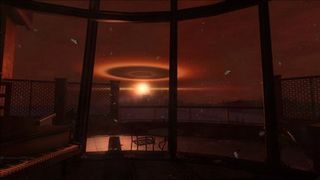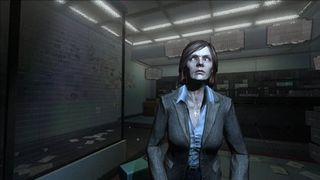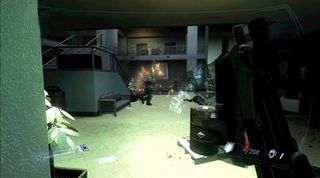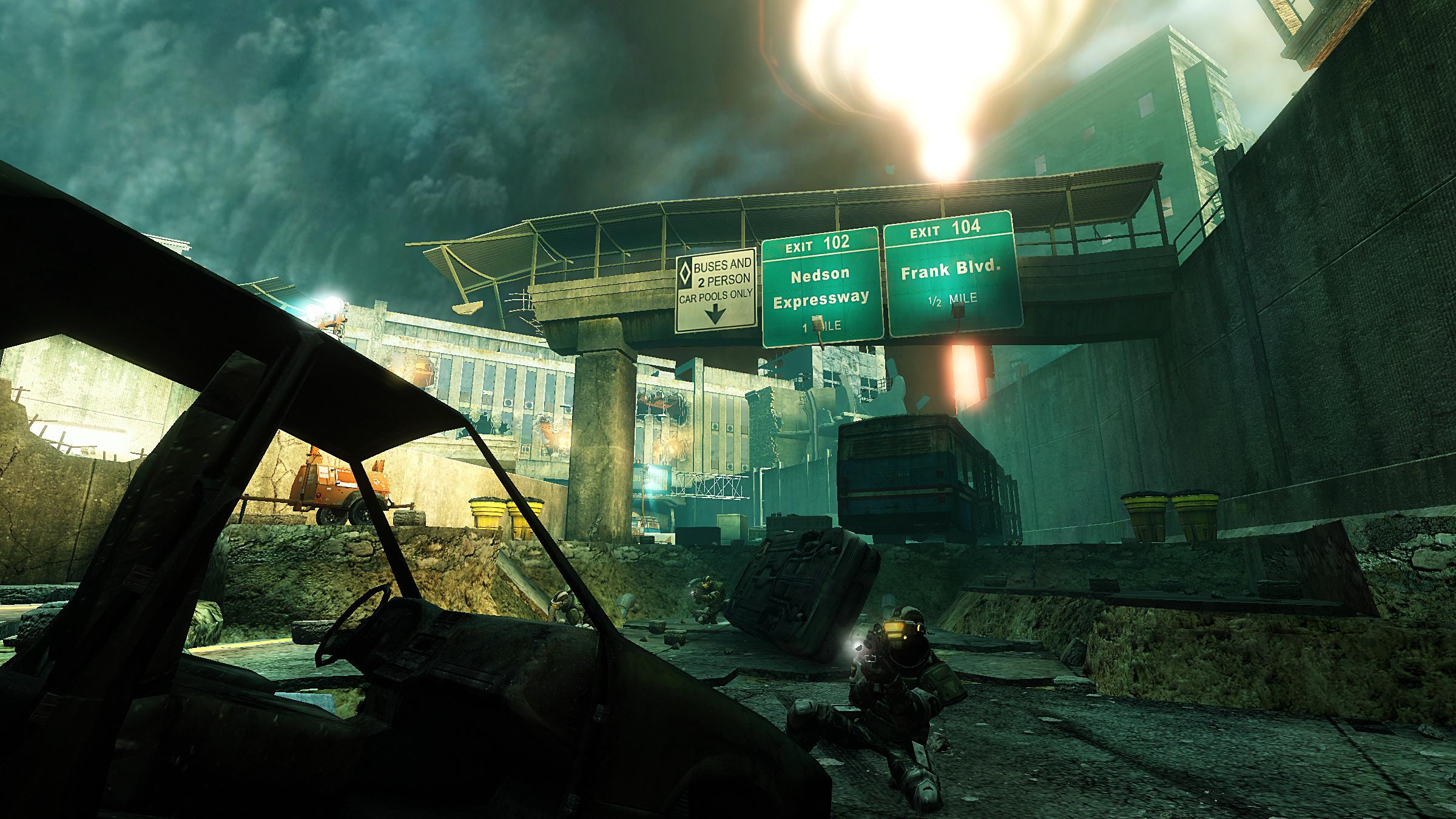Why you can trust GamesRadar+
The simple, underlying fact here is that even on the hardest difficulty setting creating cover for yourself isn’t effective. Your time would be better spent returning fire to your enemies while making use of pre-existing cover. Certainly it’s a feature you can ignore but in doing so you begin to reduce Project Origin to a basic continuation of the original FEAR – a direction you can see this review heading in.

Another complaint comes into view here too: Project Origin just isn’t a challenging game. Health packs and armor flow like honey, ammunition (for the main weapons at least) is bountiful, and great big HUD icons highlight any pick-ups. The removal of a quicksave option prevents you throwing yourself into those wonderfully impossible-to-win situations you’re forced to fight your way out of – instead regular checkpoints ensure your safety from start to finish. Ramping up the difficulty setting does seemingly little, besides increasing the damage you receive.
And it was through repeating your fights that the original FEAR’s AI shone. Only by watching how the enemy’s tactics changed to reflect your actions did you properly appreciate their flanking maneuvers and clever grenade avoidance techniques. Project Origin’s foes are a verbose lot for sure, shouting their thoughts and opinions back and forth like gun-toting masters of debate, but they lack a killer instinct. It’s in there, we’re sure of it, but with the difficulty so diluted we’re just not getting a chance to see it.

So it seems a mite unnecessary to let you pilot one of the armored exo-skeleton mechs through two sections of the game – gunning down anything with a heat signature and tearing through the remains of the city with rockets that make lovely spiral smoke effects as they scream through the air.
These sections stomp on any sense of tension or fear, replacing it with explosions, noise and death. But that’s fine by us. Just getting into the power armor is an exciting experience: you pull the cockpit down around you and for a moment you’re in the dark. Then the video feed kicks in, the displays flickers into life and a lady computer says something like “Hello and welcome to the mech bit”.

The ensuing carnage is gloriously well-rendered. Your powerful cannons rip through walls, causing enemies to erupt into limbs, and your rockets deliver some of the game’s finest explosions. You feel invincible (you’re not, thoughwe defy you to die during these sections), and the level forces you out of your mech before you get a chance to tire of the action.
More info
| Genre | Shooter |
| Description | After a long battle, the official FEAR sequel is here, and the positives, like majorly creepy atmospheres and great AI, are back. Unfortunately the previous game's story shortcomings are back too. |
| Platform | "PS3","Xbox 360","PC" |
| US censor rating | "Mature","Mature","Mature" |
| UK censor rating | "18+","18+","18+" |
| Alternative names | "Project Origin","F.E.A.R. 2: Project Origin" |
| Release date | 1 January 1970 (US), 1 January 1970 (UK) |
Steve Hogarty is a London-based freelance journalist covering games and technology. His bylines have appeared in publications including GamesRadar, The Independent, Yahoo, VICE, Eurogamer, and more. He is also the co-host of the pocast, Regular Features.

Devs behind the legendarily horny Dead or Alive series take "strict action" against nearly 3,000 pieces of content made for "adult purposes" every year

Call of Duty dev's Dino sword fighting game that started out as a joke secures 10k wishlists in its first day

Veteran analyst expects Switch 2 to be "a massive success," but doesn't see it matching the "outlier" that was the Switch 1: "It could happen, but it's not likely"
Most Popular

